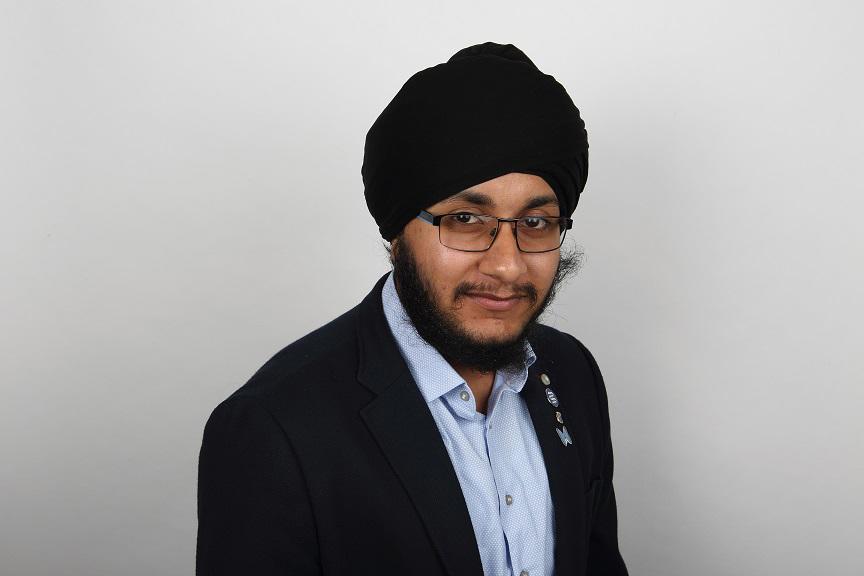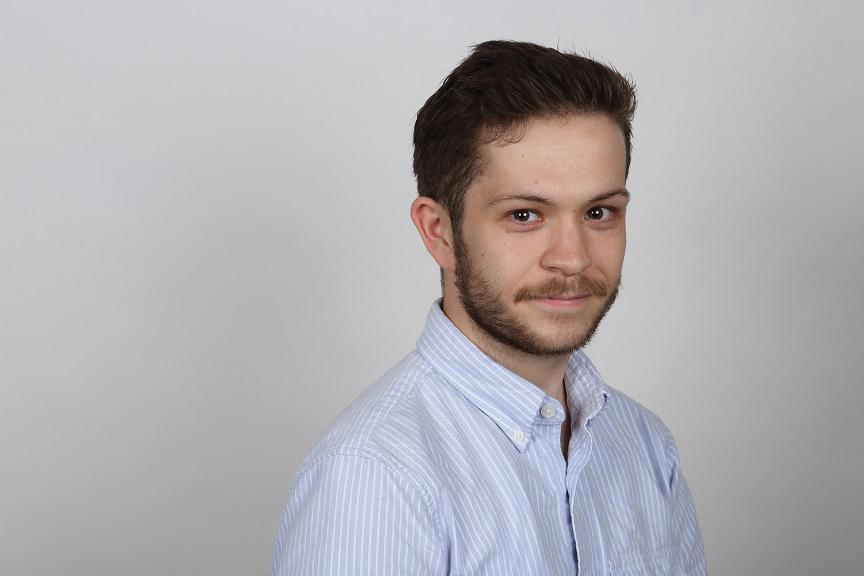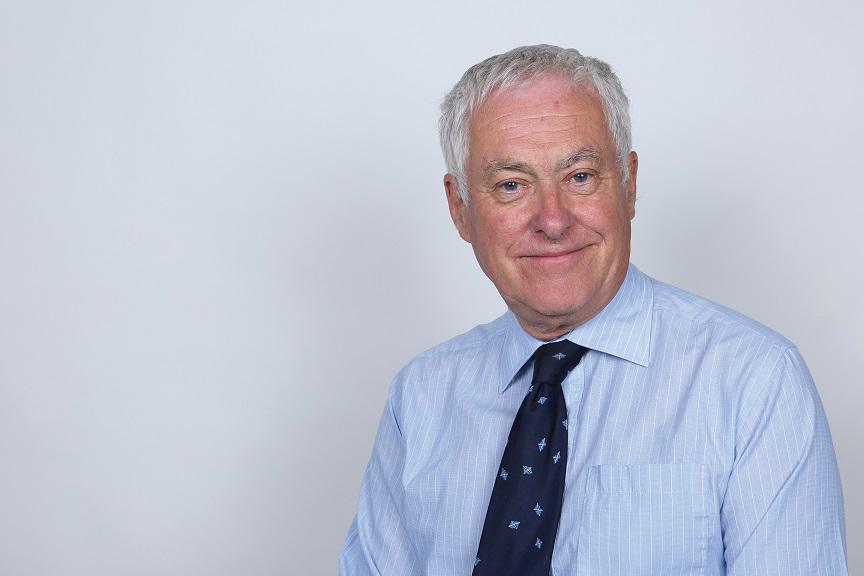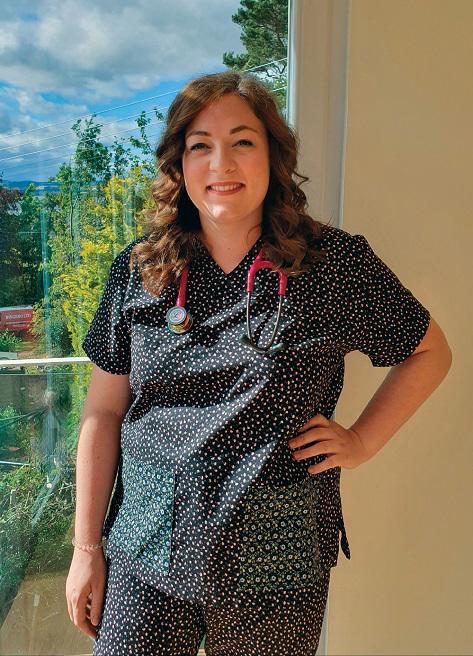 SINGH: 'My friends got increased webinar teaching'
SINGH: 'My friends got increased webinar teaching'
As medical schools grapple with the challenge of opening their doors to unprecedented numbers of future doctors this month, the effect of COVID on existing students is still felt.
With face-to-face teaching and placements coming to an abrupt end at the start of lockdown, it’s been a mixed picture for students depending on their personal circumstances, the stage they had reached – and the decisions taken by their medical schools.
Students at some universities have had a better experience than others, says Gurdas Singh, co-chair of the BMA medical students committee, who is studying medicine at King’s College London.
‘It’s been disparate – from what I hear, universities reacted in different ways. For example, King’s did really well – my friends said that the way they handled it was absolutely excellent. They got increased webinar teaching, they got out-of-hours teaching which they wouldn’t normally have had. They actually got so much more teaching than they necessarily would have on clinical placements, so they felt really supported. But other people said they had virtually no teaching in their medical schools and that was quite unfortunate,’ he says.
Second-hand experience
Even where the online teaching was top-notch, the situation was far from ideal, says co-chair Chris Smith, a student at Southampton University, who is now based in Jersey for his final year.
‘From what I’ve been hearing from my peers, we [at Southampton] got a pretty good part of the deal. We got semi-regular lectures, semi-regular tutorials, which is a lot more than a lot of other people got, but it still wasn’t enough. It didn’t make up for actually seeing people and actually being on placement. It didn’t make up for being in the room and sitting in the tutorial.’
We got semi-regular lectures, semi-regular tutorials, which is a lot more than a lot of other people gotChris Smith
As with other students going into their final years, Mr Smith experienced the cancellation of a placement, in his case, psychiatry. He confesses he wasn’t completely broken-hearted about this, but he is now a bit fed up that, in order to make up the hours, he will not be able to do his elective placement.
‘I was supposed to be doing oncology, which is the career that I’d like to go into,’ he says. ‘It was a bit of an unfortunate turn of events, but it’s just one of the things that we’ve had to adapt to with COVID.’
Home study drawbacks
 SMITH: 'We did sit our exams, but they were online and automatic progression'
SMITH: 'We did sit our exams, but they were online and automatic progression'
There were other, more practical considerations as well. ‘I’ve been living with a shielding parent and haven’t been able to volunteer to work in the NHS,’ says Mr Smith. ‘I just studied at home and used the virtual learning, including lectures, provided by the university. We did sit our exams, but they were online and automatic progression.
‘There were four of us working from home trying to use the internet, and we didn’t have a good internet connection. We had to buy new routers, we had to buy desks, we had to buy chairs. I hadn’t lived at home for a prolonged period of time for more than eight years so it took a bit of getting used to, settling back in. We were lucky in that we had some outside space, but it wasn’t easy.’
Even for those who were able to volunteer to work in the NHS, experience varied. ‘I have friends in Bournemouth who felt really fulfilled by what they were doing. They felt they were part of a team and that they were contributing something. Whereas I had other people at busier, bigger hospitals who said there were so many people there that it was difficult to find shifts and they didn’t feel that they were being properly utilised a lot of the time. I also know students who applied to be foundation year 1s early but they weren’t needed.’
Closed canteens, long hours
Medical students who had taken time out of their courses to complete an intercalated degree were also affected. Mr Singh, who was working on an intercalated master’s in hand surgery at Oxford, found himself back in his childhood bedroom rather than in the lab or library as he tried to finish his course work.
The start of the pandemic was a ‘weird time’, he says. ‘All my flatmates started to leave. It was quite upsetting to be honest – it felt very isolating. It was also very difficult because all of the facilities in Oxford shut down – normally you rely very much on catering, eating in halls, because it’s so much cheaper even than going to a supermarket and cooking your own. So, expenses went up, you couldn’t see people – because it was classed as a communal area you couldn’t even sit with people on the college grass.’
I worry about the strain this is causing all through medical schoolPeter Dangerfield
His research involves patient-identifiable data, so when he realised he would no longer be able to go to the data lab, he had a ‘mad panic’ extracting all he could that wasn’t patient identifiable, while ensuring that governance arrangements were in place.
‘I was working very long hours getting the data in a state where I could take it with me – working overnight, 30 hours [at a time]. I had to get permission from the information commissioner’s office to take it out. Obviously, it wasn’t ideal – I basically became sort of a zombie.’
He also had limited contact with his supervisors, two of whom were clinicians and required to work in hospital, while the other two were told to shift their research to coronavirus. ‘They really didn’t have time to start looking at my thesis, for example, or my modelling or anything like that.’
‘Mixed bag’
 DANGERFIELD: 'A lot of them missed out on the formal teaching they would have expected'
DANGERFIELD: 'A lot of them missed out on the formal teaching they would have expected'
Peter Dangerfield, co-chair of the BMA’s medical academic staff committee and senior lecturer at the University of Liverpool, says it’s been a tough time for students at all stages, but that experience has varied.
‘One gets a feeling that it’s been rather a mixed bag – some have done quite well out of it, and others don’t seem to have had as good an experience as they would have liked. I get a feeling as well that a lot of them missed out on the formal teaching they would have expected to come up to standard at the end of the year.
‘A lot of them were pushed out in March when they’d normally be there until June, continuing studies and possibly exams and everything else.’
Some students fared better than others with formal teaching cancelled. For those from more affluent backgrounds, there were comfortable working conditions, working high-speed wi-fi and perhaps even a doctor mum or dad to help with home-study.
Others weren’t so fortunate – which runs the risk of baking in already-existing inequalities. ‘It’s partly the luck of the draw and if you know the right people,’ says Prof Dangerfield.
On the whole, students – the future medical workforce – have done us proud during the pandemic, says Prof Dangerfield. But he adds: ‘I worry about the strain this is causing all through medical school – we have enough problems with anxiety and depression and mental issues with the students as it is, and it is a constant worry.’
A flying start
For one student, beginning her career early was a hugely positive experience, and she even had a graduation of sorts
 PATERSON: ‘As long as people are supporting each other, it really gets you through’
PATERSON: ‘As long as people are supporting each other, it really gets you through’
For Amy Paterson, the pandemic meant starting work as a doctor earlier than planned.
A final-year student at the University of Dundee, she opted to join the GMC register early and take up a post as an interim foundation year doctor. At first, she had been told she would be working on the COVID ward – which she admits was a ‘daunting’ thought – but in the event, the reduction in cases meant she was allocated to the general medicine ward at Perth Royal Infirmary. PRI – part of NHS Tayside – was designated as a ‘clean’ hospital, that is, there were no positive cases of COVID.
‘At the start it was very quiet but as the weeks went on a lot of
patients coming in were very sick – I think because they hadn’t wanted to come in because of COVID so they had delayed seeking help. About three weeks in, it started to get very busy so they were very grateful to have extra hands.’
She found the medical staff at PRI very helpful. ‘I learned a huge amount, and one thing that sticks in my mind is the teamwork aspect. It seemed the most important thing – as long as people are supporting each other, it really gets you through. I really enjoyed it, and everyone pulled together.’
Being allocated that role was particularly good for Dr Paterson, because it was where she was to start working in her first substantive post – this time as a ‘real’ rather than interim FY1. ‘I feel much better prepared,’ she says. ‘I think the registrars recognised that this was actually a very good opportunity for us because they remembered feeling very overwhelmed on their first day, even when doing things like prescribing paracetamol, but we’ve been doing that for months now so it won’t seem as daunting, I think.’
She felt appreciated, she says. ‘They even had a fake graduation ceremony for us when we left – they got us a card and Prosecco; it was so nice of them and they were very kind to us.
‘I’m pleased to have got through medical school when I did – I think we were probably the best of the five years, because we were able to start work. I have friends in the year below and they still aren’t really sure what their final year is going to look like and how their scores will be calculated, so I’m glad to be through.’

